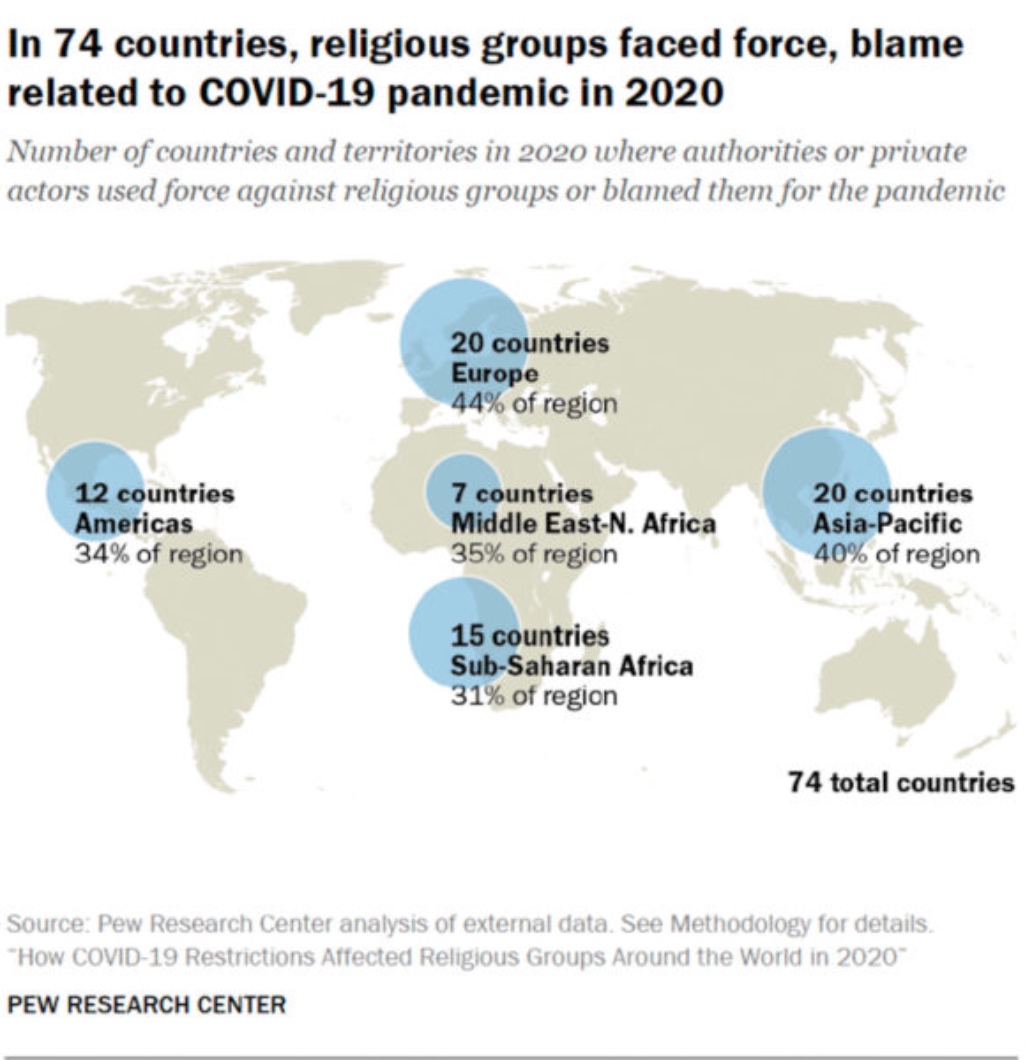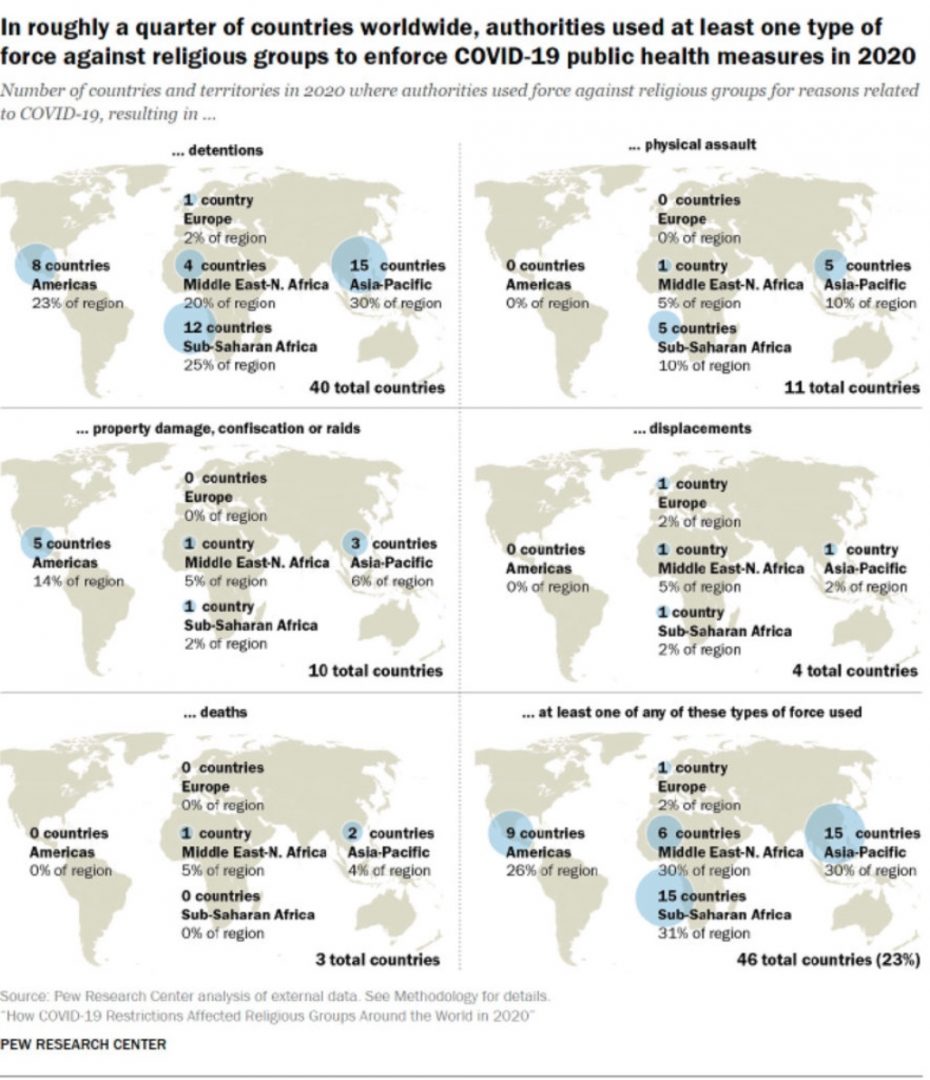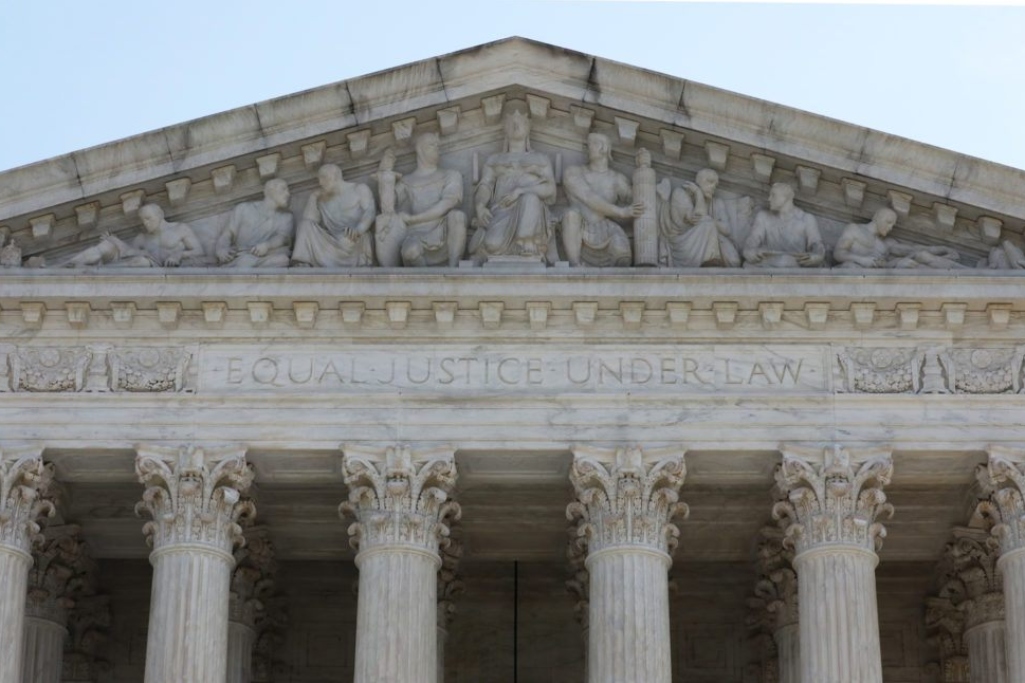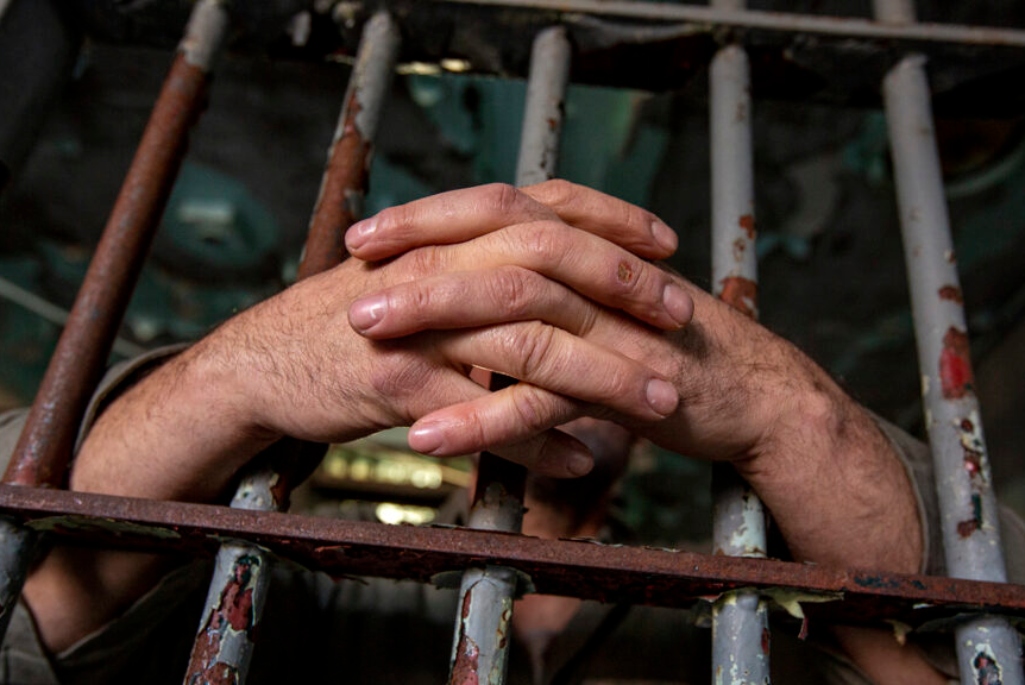About one-fourth of nearly 200 nations studied by the Pew Research Center used force to prevent religious gatherings during the COVID pandemic.
A newly released Pew study of restrictions on religion around the world examined 198 countries and territories.
Authorities in 46 of those areas (23 percent) used physical means – including assault, detention, property damage or confiscation, displacement or death – to enforce pandemic-related restrictions on worship services and other religious gatherings. The total does not include countries that used less-stringent means of enforcement, such as fines for violations.
“In 40 of the 46 countries where force was reported to have been used, governments arrested and held worshippers or religious figures for gatherings that violated public health measures, or for other actions by religious groups relating to the pandemic,” the report states.
Authorities in at least 11 countries physically assaulted individuals who gathered for worship.
More than 300 Christians in China were arrested in February and March 2020 during pandemic-related home inspection and identification checks. Some were beaten and subjected to electric shocks, according to the U.S. State Department’s Report on International Religious Freedom.

Two Christians in India’s Tamil Nadu State died after they were beaten while in police custody for allegedly violating COVID curfews.
In 74 countries and territories (37 percent), the study found governments used force to limit religious gatherings, religious groups were blamed for the spread of the virus, or private actors engaged in pandemic-triggered violence or vandalism against religious groups.
They included 12 countries in the Americas, 20 in the Asia-Pacific region, 20 in Europe, seven in the Middle East and North Africa, and 15 in sub-Saharan Africa.
‘Used the pandemic to further existing discrimination’
Randel Everett, founding president of the 21Wilberforce human rights organization, pointed to a fact sheet published in March 2020 by the U.S. Commission on International Religious Freedom.
The commission document called on governments to develop public health responses to the pandemic that avoided measures placing an undue burden on religious observance or stigmatizing religious groups.
“Pew’s latest research report brings to light many examples of governments and government officials that did just that,” Everett said. “They used the pandemic to further existing discrimination, marginalization and persecution of people of faith. A draconian example is the total lockdown in China.”
China – initially criticized for its early failure to address the spread of the coronavirus – instituted strict “zero-COVID” restrictions. In recent days, thousands have taken to the streets to protest oppressive lockdowns instituted by President Xi Jinping.
In 45 countries (23 percent), some religious groups asserted pandemic-related restrictions unfairly targeted them when compared to businesses and nonreligious institutions or when compared to other religious groups.
Religious groups in 18 countries said restaurants, other businesses and nonreligious gatherings were treated with more leniency than religious institutions. In the remaining 27 countries, the study noted reports that enforcement of restrictions favored some religious groups over others.
In Myanmar, leaders of religious minority groups asserted authorities enforced COVID-related health restrictions much more stringently against Christians and Muslims than against Buddhists.
For example, 12 Muslim men in Myanmar received three-month prison sentences for holding a religious gathering in a house, and a Christian pastor was sentenced to three months in prison for holding a prayer meeting. However, none of the 200 individuals who attended a Buddhist monk’s funeral were arrested, and organizers received fines.
Resistance, defiance or cooperation
In 54 countries (27 percent), religious groups either filed lawsuits or spoke out against restrictions—typically complaints against unequal treatment.
The study identified 69 countries (33 percent) where at least one religious group defied COVID-related public health restrictions.
On the other hand, researchers noted religious leaders or groups in 94 countries (47 percent) encouraged their followers to worship at home, promoted online alternatives or encouraged efforts to stop the spread of the virus, such as wearing masks and practicing social distancing.
In at least 55 countries (28 percent), government officials and religious leaders worked collaboratively to promote public safety and stem the spread of the COVID virus, including half of the countries in sub-Saharan Africa.
“I don’t find it surprising that religious leaders and communities helped to shape the attitudes of people toward public health recommendations aimed to combat the COVID-19 pandemic, whether it was relying on religious laws and theological views to support restrictions, placing value on human life and caring for the community,” Everett said.
For 13 years, the Pew Research Center has studied religious restrictions globally, analyzing changes in the Social Hostilities Index and Government Restrictions Index scores at global and regional levels.
The 10-point Social Hostilities Index measures hostile acts against religious groups by private individuals or organizations, while the 10-point Government Restrictions Index looks at law, policies and actions by the state to limit religious freedom.
The median score on the Government Restrictions Index showed a slight decrease, from 2.9 in 2019 to 2.8 in 2020, while the Social Hostilities Index rose from 1.7 in 2019 to 1.8 in 2020.
Looking at overall restrictions – not just those related to public health – the Pew Research Center found 77 countries (39 percent) with “high” or “very high” levels of government restrictions, social hostility or both. That is a slight increase from 75 countries (38 percent) the previous year, but it is below the peak of 85 countries (43 percent) in 2012.

(EDITOR’S NOTE – Ken Camp is the managing editor of Baptist Standard.)


